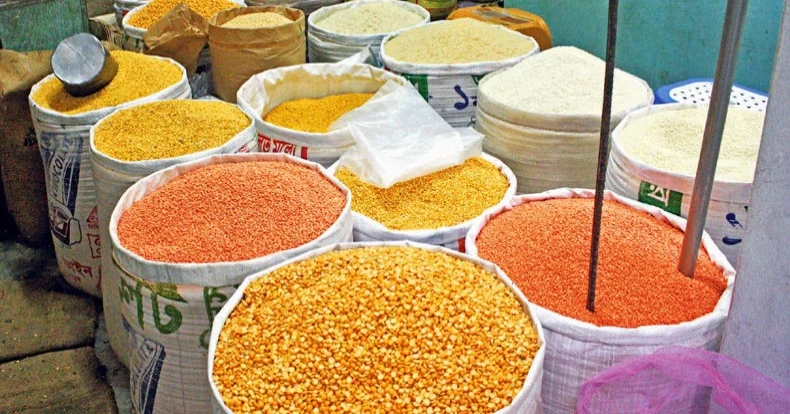China Eyes Bangladeshi Jackfruit & Guava Exports: A New Trade Frontier for Bangladesh
Bangladesh may soon see a major shift in its agricultural export landscape. According to Yao Wen, China’s ambassador to Bangladesh, the Chinese market is actively working to open up for key Bangladeshi fruit exports, including jackfruit and guava. The development follows the successful export of Bangladeshi mangoes to China earlier this year.
The announcement came during the launch of the Bangladesh‑China Green Textile Expo 2025 at the International Convention City Bashundhara (ICCB) in Dhaka. Ambassador Yao emphasised the deepening trade and investment ties between the two countries, and also pointed to China’s readiness to support Bangladesh’s textile industry in moving towards greener manufacturing.
Bangladesh Fruit’s New Path to China
The ambassador’s comments shine a spotlight on Bangladesh’s fruit-export potential. Until now, Bangladesh primarily sent mangoes abroad — with the first consignment of fresh Bangladeshi mangoes reaching China in May 2025.
Now, jackfruit (the national fruit of Bangladesh) and guava are on the agenda. These tropical fruits, grown abundantly in Bangladesh’s south and centre, could tap into China’s vast consumer base — if market access and logistic chains are put in place.
For many Bangladeshi growers, this prospect offers hope of increased revenues and better global market visibility. With China already maintaining trade relations worth over US$24 billion with Bangladesh, according to Ambassador Yao, the potential for agricultural diversification looks strong.
Why This Matters for Bangladesh
1. Diversifying Exports
Bangladesh has long been reliant on the ready-made garments sector. While garments remain crucial, moving into fresh agricultural exports like jackfruit and guava offers a valuable diversification of the export base.
2. Boosting Farmers’ Incomes
Thousands of small-holder farmers in regions such as Rangamati, Jhalakathi and Khulna depend on fruit crops. Access to a market like China could mean higher prices, stable demand and improved livelihoods. The Prothom Alo report mentions boatfuls of jackfruit destined for weekly markets in Rangamati, hinting at supply potential.
3. Leveraging Existing Trade Relations
China has been Bangladesh’s largest trading partner for 15 consecutive years, as noted by the ambassador. The fact that China granted zero-tariff treatment to 100% of Bangladeshi taxable products until 2028 shows a favourable environment for expansion.
4. Strengthening Food Security and Agriculture Value Chain
By focusing on fruit exports, Bangladesh can strengthen its agriculture value chain — orchard infrastructure, cold-chain logistics, quality control, and export certification. Such improvements benefit not just export crops but also domestic food systems.
What Needs to Be Done
For jackfruit and guava to make a breakthrough in China, Bangladesh will need to address several key areas:
-
Quality assurance and phytosanitary compliance: Chinese import requirements tend to be strict, especially for fresh fruit. Bangladesh exporters will need to meet standards related to pesticide residue, packaging, and freshness.
-
Cold chain logistics and transportation: Ensuring the fruits reach Chinese consumers in top condition will require refrigerated transport, efficient customs and reliable supply-chain management.
-
Market research and consumer preferences: Chinese consumers already buy imported mangoes; jackfruit and guava may need marketing and brand-building efforts to carve a niche.
-
Supporting farmers and cooperatives: Farmers need training, investment and aggregation mechanisms to benefit from export opportunities rather than merely growing for local markets.
-
Leveraging trade facilitation and bilateral agreements: Bangladesh and China should ensure smooth export processes, tariff alignment, and possibly dedicated production zones for export fruit.
Exporting Mangoes Set the Precedent
The ambassador cited the successful export of Bangladeshi mangoes to China in May 2025 as evidence that Bangladesh’s fruits can meet high international standards.
That success offers a blueprint: Bangladesh can replicate the process for jackfruit and guava — namely, production scaling, certification, export logistics and brand promotion. If done right, these fruits can expand Bangladesh’s footprint in high-value agriculture.
Challenges and Cautions
Despite the optimism, there are pitfalls:
-
Export volume may initially be limited, making returns modest until scale is achieved.
-
Perishable nature of fruits means any logistical slip-up can result in losses — for instance, spoilage or transit delays.
-
Competition is stiff: many tropical fruits already vie for space in China’s market, so Bangladesh must differentiate its offering.
-
Domestic supply and local market price impacts: if large volumes are diverted to exports, domestic availability or prices could be affected — policymakers must balance export incentives with local food security.
The Broader Picture: Green Textiles and Agriculture
Ambassador Yao’s remarks at the Green Textile Expo also pointed to a broader economic strategy: China’s support for Bangladesh’s green industrial transformation, particularly in textiles.
These two threads — green manufacturing and high-value agriculture — suggest Bangladesh is poised to elevate its global trade positioning. Fruit exports like jackfruit and guava will not just generate revenue but also underline Bangladesh’s move toward sustainable, diversified growth.
Looking Ahead: What This Could Mean
If Bangladesh successfully exports jackfruit and guava to China, several positive outcomes could follow:
-
A new export segment worth hundreds of millions of dollars could open, benefiting rural economies.
-
More investment may flow into upstream agriculture (nurseries, orchard management, cold-chain infrastructure).
-
Bangladesh will gain stronger bargaining power in agricultural diplomacy with China and other markets.
-
Farmers may adopt higher standards, promoting food-safety practice, reduce post-harvest losses and enhance overall crop quality.
-
Other fruits and agricultural products could follow suit — Bangladesh could develop a reputation as a reliable source of premium tropical produce.
Conclusion
The Chinese ambassador’s statement that China is ready to import Bangladeshi jackfruit and guava could mark a turning point for Bangladesh’s agriculture exports. With garments still dominant, this shift offers a chance for farmers, regional economies and the national trade portfolio to grow in new directions.
By building on the precedent of fresh mango exports to China, strengthening logistics and quality protocols, and aligning with trade-friendly policies, Bangladesh could unlock significant gains from its abundant fruit production. The move also aligns with ambitions for sustainable growth, where agriculture plays a key role in a greener, diversified economy.







